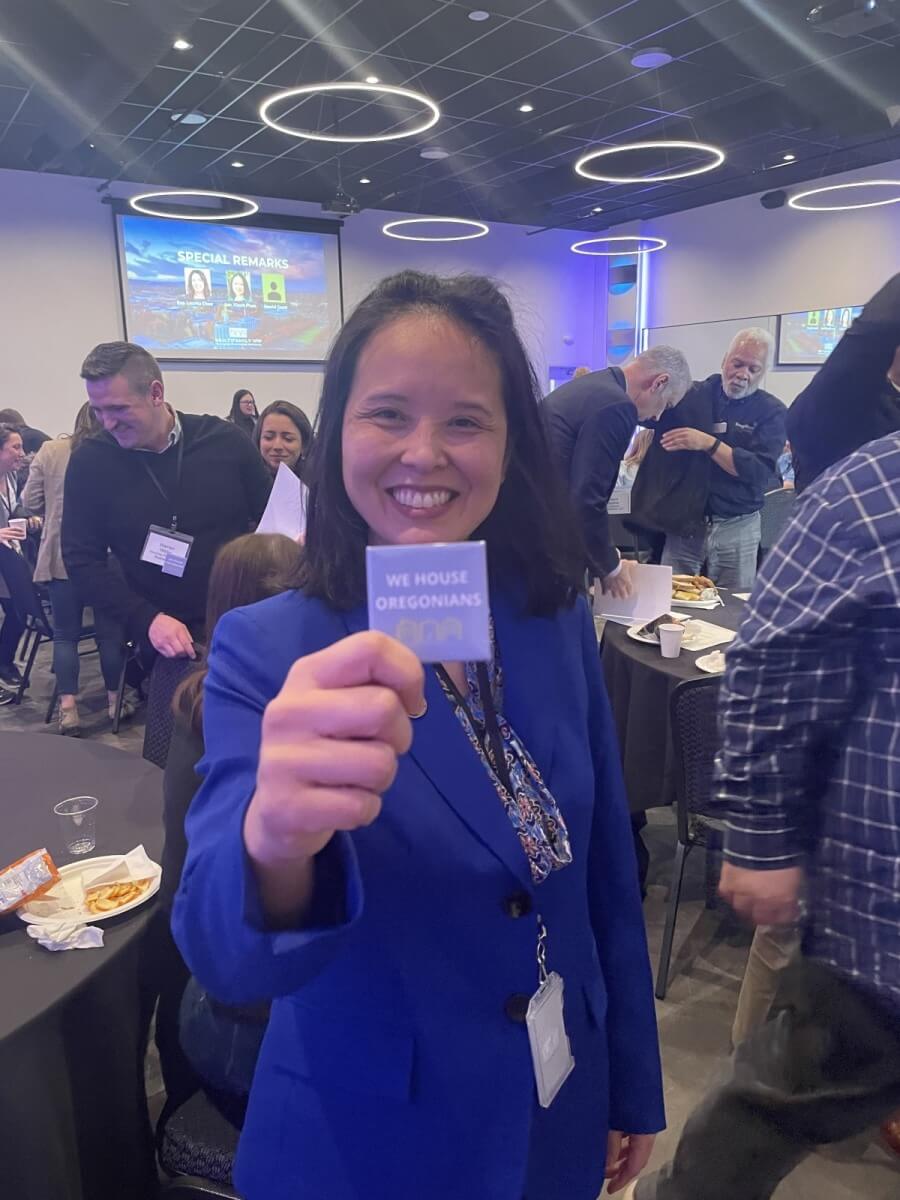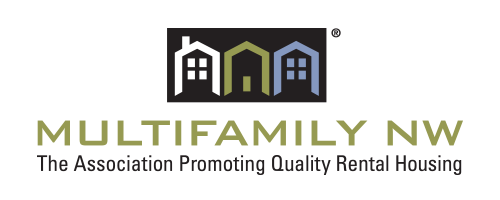2025 Oregon Legislative Session Review
Late Friday, June 27th, the 2025 Oregon Legislative Session ended "Sine Die." Oregon’s 2025 session was certainly a challenging moment in our state’s political history books. It’s Oregon is wrestling with a number of difficult political and economic uncertainties in a uniquely divisive political environment.
Despite the political headwinds in Salem this year, Multifamily NW made substantial inroads on challenging misguided policies impacting everything from rent control to construction and development regulations. The 2025 session marks a political turning point for our organization. We approached this year’s session with a focused, disciplined strategy – and set clear policy priorities that guided every piece of testimony and our collaborations with legislators and their staffs.
By many measures it was an amazingly successful session for rental housing owners and operators. A record of more than 3,400 bills were dropped for consideration this session. Multifamily NW Government Affairs Team actively tracked more than 120 bills that could have potentially impacted our industry and submitted more than 70 letters of formal testimony. Thank you to all members who participated in our Advocacy Hill Day in February, joined our weekly Friday calls to hear about the latest efforts, and those who made multiple trips to testify at committee meetings and meet with Legislators.
The Government Affairs Team operates from our legislative priorities, comprised of our 7 foundational pillars; those include:
- Maintain Affordability and Support Operations
- Supporting Additional Resources for Renters
- Promoting and Preserving All Housing Development
- Preventing Patchwork Regulations
- Long-term Financing for Housing Development
- Meaningful Changes to the Eviction Process
- Miscellaneous/Supplier Specific Policies
We are proud to share this disciplined approach resulted in a remarkable number of bad bills failing – and helped more than a few good ones move forward with our input and partnership with other advocates and stakeholders.
Our approach this year was anchored in a series of tactical priorities that helped our team navigate a shifting landscape while delivering results for our members, including:
Legislative Briefing Book. We created tailored fact sheets for every legislative district and built the tools our members needed to engage effectively.
Calls To Action. We issued nine calls to action over the course of the session – and MFNW members from 77 cities in 33 counties responded. In total, more than 6,000 messages were sent to lawmakers this year.
2025 Member’s Capitol Day. We organized and mobilized 40+ members to participate in meetings with key legislators and policy influencers in Salem – including a meeting with Governor Kotek to make sure our industry’s voice and priorities were heard.
We know how much your participation played a role in making our industry’s voice heard in Salem – and it led to a series of important strategic wins that helped lay the groundwork for a revise policy outlook in our state.

|

|
Advocating for Common Sense Legislation, More Housing
Our team was committed to being more than just the voice of “no” to the housing proposals introduced this year. We worked hard to come to the table advocating for solutions to Oregon’s crisis – and supporting Governor Kotek’s goals of building more housing over the coming decade.
We’re worked to inform a number of complex policy proposals while blocking others all together. In the end, we are able to point to number of legislative successes.
Of the 120 tracked bills, 46 were supported, 22 were opposed and 52 were neutral/monitored.
Click to download PDF for all priority bills.
DEFEATED BILLS
HB 3111 – Would have required OHCS to establish an eviction mediation program.
SB 594 – Would have prohibited housing providers from terminating a tenancy, unrelated to the tenant's fault, during a school year if the tenant is a grade school student or teacher.
HB 3769 - Would have directed the state of Oregon to register all dwelling units that are rented or available for rent.
HB 3371 - Would have required housing providers to notify and treat lienholders of abandoned vehicles the same as lienholders of abandoned RVs, manufactured housing or floating homes.
HB 3523 - Would have prohibited discrimination in real property transactions for those under the age of 18.
HB 3767 - Would have repealed the prohibition on local rent control allowing cities or counties to impose rent control.
SB 722 - Would have prohibited residential housing providers from using certain software to set rents or occupancy rates, establishing statutory damages available to affected tenants or applicants. Also, would have reduced, from 15 to seven years, duration that new dwelling units are exempt from caps on residential rent increases.
HB 3533 - General consumer protection themed bill that would have required broad disclosures of fees and pricing in certain transactions creating applicability and compliance uncertainty for rental housing providers.
SB 54 - Would have required that residential tenants be provided with indoor cooling or cooling spaces for multiunit buildings with 10 units or more. Would have required, by January 1, 2036, that all housing providers provide indoor cooling. Makes cooling an "essential service" for residential tenants. January 1, 2036, that all housing providers provide indoor cooling.
HB 3877 - Would have required the State of Oregon to establish a rental licensing program for the annual licensing of dwelling units for rental or vacation occupancy, authorizing licensing fees and penalties. Would have required dismissal of eviction for units not licensed.
HB 2070 - Would have prohibited residential housing providers from charging a tenant additional rent or fees because of a tenant's pet.
HB 2967 - Would have prohibited residential housing providers from charging an applicant screening charge.
HB 3974 - Would have limited the applicant screening charge a residential landlord may collect to $20.
SB 89 – Would have Required the State Department of Energy to coordinate with other organizations, conduct outreach, establish a statewide navigation and support system and provide information in multiple languages, as part of the department's single resource for providing information and assistance related to available energy efficiency incentives and programs.
HB 2754 – Would have stoped a landlord from barring or limiting a tenancy based on a tenant's ideas “viewpoint discrimination.”
SB 444 – Would have required 10% of all new multifamily construction to include Type A Accessible Units. The current federal mandate is 2%.
SUPPORTED BILLS, SIGNED (OR LIKELY TO BE) BY GOVERNOR
SB 32 – Requires OHCS to maintain on website all information on publicly supported housing affordability restriction deadlines.
SB 973 – Extends to 30 months the minimum notice period required for applicants and tenants when a subsidized property's affordability restrictions will expire.
HB 2567 – Extends sunset on the rental home heat pump program through 1/2/2032.
SB 814 – Modifies eligibility criteria for the long-tern rental assistance program for individuals under 25 years old.
HB 3522 – Allows for an expedited process for an owner or landlord to evict a squatter.
HB 5011 – Budget bill for the Oregon Housing and Community Services department. $33.6 million to support eviction prevention & $87.4 million for Long Term Rental Assistance up to 24 months.
SB 829 – Requires the Department of Consumer and Business Services to establish a program to assist eligible entities in paying the costs of property insurance or liability insurance premiums for affordable housing, shelters, and other facilities.
SB 690 - This Act delays evictions for babies' families who get help with rent through OHP. Requires courts to delay residential eviction trials for nonpayment until at least 90 days following approval of health-related social needs housing supports. Requires the Judicial Department to make conforming updates to the nonpayment termination notice. Sunsets on September 28, 2027.
OPPOSED BILLS SIGNED (OR LIKELY TO BE) BY GOVERNOR
HB 3054 – Limits the amount of a rent increase on spaces at mobile home parks and floating home marinas to six percent annually, beginning in 2026, for those with more than 30 spaces.
HB 3521 – Requires residential landlords to pay a minimum amount of damages for breaching an agreement to later execute a rental agreement of a habitable dwelling unit in exchange for holding a deposit, unless the deposit is returned within five business days.
HB 3378 – Requires housing providers to offer nonapp keys to tenants.
SB 426 – Makes owner and a direct contractor jointly and severally liable in a civil action for any unpaid wages owed to the unrepresented employees of the direct contractor and subcontractors at any tier.
HB 2134 – Allows tenant to terminate a tenancy during the fixed term without penalty upon 30 days’ notice if the landlord delivers certain notices terminating the tenancy in 90 days or more.
NEUTRAL BILLS THAT CHANGED OPERATIONS & SIGNED (OR LIKELY TO BE) BY GOVERNOR
SB 599 – Prohibits discrimination based on immigration or citizenship status.
SB 586 – 60-day Termination Notice for principal residence of buyer. One month rent relocation payment required.
SB 1036 – Limits a tower’s authority to independently tow a motor vehicle. Housing provider must initiate all towing on property, even the previously most egregious of blocking the entrance, blocking a fire lane, or blocking another vehicle.
HB 3525 - Requires, for each dwelling unit rented by a landlord for which the source of drinking water is an exempt well in a ground water management area, that the landlord collect and test samples of drinking water from the dwelling unit for arsenic, coliform bacteria, lead and nitrates. Requires the Oregon Health Authority to adopt implementation rules. Becomes operative on January 1, 2027.
SUPPORTED BILLS – DID NOT PASS
HB 3890 – Would have made police give notice to a landlord after responding to an incident at a rental unit.
HB 2297 – Would have required tenant to pay accruing rent to avoid termination of nonpayment.
HB 2305 – Would have allowed landlord to terminate residential tenancy upon third material violation or late payment upon 30days’ notice with no right to cure.
HB 2045 – Would have required courts to order the removal of trespassers from a residence upon a sworn declaration from an owner/agent.
SB 158 – Would have allowed a landlord and tenant to agree to a reoccurring charge in lieu of a security deposit.
Defense Fund Fundraising Season
We need to support housing supply champions and other legislators we work closely with to ensure we continue to promote our legislative agenda. Please consider contributing to our Defense Fund so we'll have the resources needed for continued success in the short session of 2026 and beyond.
